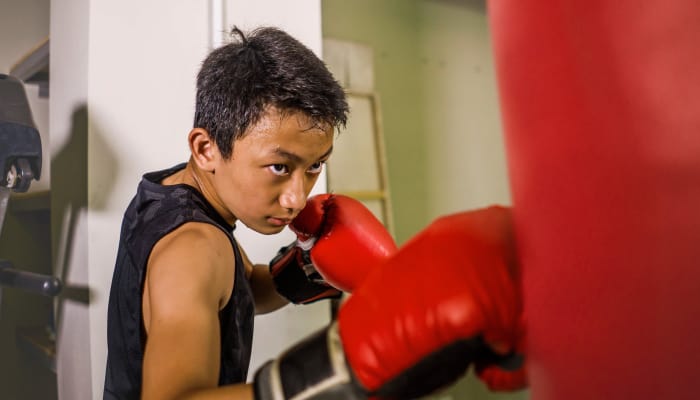By Guest Blogger Tracy Huneycutt
Navigating the preteen years (ages 9-12) can be challenging for children and their parents. It is a season of many social, emotional, and physical transformations. Preteens often experience changes in their moods and energy levels, are frequently unable to control and express big emotions in mature ways, begin arguing with and questioning authority figures, and become more self-conscious about their bodies.
Outside of schoolwork and activities, we are fortunate that our son has a variety of interests. He enjoys reading and writing, is involved with serving at our church, and loves sports – especially football, soccer, and swimming. But when we recognized he could benefit from external help with regulating his temper during frustrating moments (a very developmentally appropriate issue for this age group,) we began to research some additional activity options.
As parents, we encourage our children to participate in physical activities, as we know of their many advantages. Physical exercise helps children build strong bones and muscles, lowers their risk of diabetes and other health concerns, builds confidence, and helps them have an improved outlook on life.
In researching specific ways to help a preteen develop self-control and manage bigger emotions, we came across the advantages of martial arts. Martial arts can include taekwondo, Jiu-Jitsu, karate, and boxing, all of which emphasize the art of self-defense and self-control strategies. Numerous studies have shown that children, preteens, and teenagers who participate in a regular martial arts program cultivate discipline and respect, improve their concentration and coordination, and develop healthier living skills.
We researched the various martial arts opportunities in our area, and with our son’s input, we registered him for a complimentary boxing class. We selected a non-combat boxing studio (meaning that all exercise takes place with a hanging boxing bag) designed for people ages 10 and up. Although new to the form and techniques used in the class, he immediately enjoyed it and wanted to participate on a regular basis. We invested in boxing gloves and hand wraps and enrolled him in a once-a-week membership program (various membership levels are available, so we can always increase the number of classes he takes in the future.)
Over time, taking a boxing class on a recurring basis has numerous benefits for children in this age group. Boxing focuses on agility, speed, balance, and hand-eye coordination. Boxing skills take time and patience to develop, so it cultivates humility and respect. Additionally, boxing has been shown to improve confidence and lower social anxiety in preteens. It builds self-protection skills, improves endurance and strength, and encourages responsibility and dedication in other pursuits. Boxing also provides a constructive outlet to displace negative feelings.
Since a diverse group of individuals participate in boxing classes, it’s a great place for a preteen to improve their social skills and to find a positive support system. I have been grateful to witness men and women of all ages come alongside my son to partner with him, encourage him to give his all, and to help show him proper techniques. While we often must remind him to clean behind himself at home, he takes pride in joining his classmates in sanitizing his bag and exercise area at the end of each class.
The preteen years will be a journey, and positive changes will not happen overnight. Encouraging a preteen to participate in a martial arts opportunity will undoubtedly benefit the child and their parents alike. We are appreciative to have found an additional physical activity for our son to participate in, one that is welcoming and inclusive, and is providing him with skills to regulate his bigger emotions.
Want to see more blogs like this and also get notifications on local events and happenings? Subscribe to our free weekly newsletters here.














